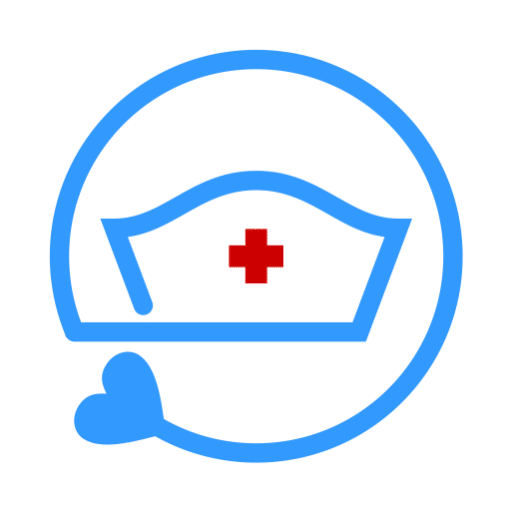Last updated on December 28th, 2023
Here we will formulate sample Hypothyroidism nursing care plans based on a hypothetical case scenario.
It will include three hypothyroidism nursing care plans with NANDA nursing diagnoses, nursing assessment, expected outcome, and nursing interventions with rationales.
Hypothyroidism Case Scenario
A 47-year-old woman presents to her primary care physician with complaints of fatigue and unexplained weight gain. The patient complains of feeling mildly unwell for the last 6 months and has experienced a variety of miscellaneous symptoms.
She has noticed her skin is more dry than usual and she has been experiencing frequent constipation. Thinking she was dehydrated, she tried to increase her water intake but noticed no improvement.
She also has been unable to participate in her daily walking club due to fatigue. Over the last 6 months, she has gained 12 kg and states “I expected some weight gain because I wasn’t walking as much, but this seems excessive!”
Upon assessment, the patient is alert and oriented. Her temperature is 37.5 ˚C, heart rate is 56 BPM, blood pressure is 124/82 mmHg, respirations 20 breaths per minute, and oxygen saturation is 99% on room air.
Aside from some dry skin and mild ankle swelling, her assessment is within normal limits.
The patient’s blood work reveals an elevated TSH level of 5.2 IU/mL and a decreased T4 level of 0.8 ng/dL.
The patient is diagnosed with Hypothyroidism.
#1 Sample Nursing Care Plan for Hypothyroidism – Fatigue
Nursing Assessment
Subjective Data:
- The patient is unable to complete her regular exercise routine due to fatigue.
Objective Data:
- The patient is slightly bradycardic.
- She has gained 12 kg in 6 months.
- TSH level of 5.2 IU/mL and T4 level of 0.8 ng/dL.
Hypothyroidism Nursing Diagnosis
Fatigue related to hormone deficiency as evidenced by weight gain, bradycardia, and inability to complete her regular exercise routine.
Goal/Desired Outcome
Short-term goal: The patient will be able to list a few strategies for managing fatigue in the short term.
Long-term goal: The patient will return to normal levels of activity and exercise.
Hypothyroidism Nursing Interventions with Rationales – Fatigue
| Nursing Interventions | Rationales |
| Routinely monitor T3, T4, and TSH levels. | Routine analysis of thyroid hormones guides treatment and ensures the patient is receiving a therapeutic dose of Synthroid. |
| Educate the patient about fatigue and Synthroid use. | Notify the patient that fatigue should improve once therapeutic levels of Synthroid are reached. |
| Provide appropriate rest periods. | Fatigue is an expected side effect of hypothyroidism. While the Synthroid gradually reaches a therapeutic level, fatigue should be managed and rest should be provided. |
| Encourage the patient to track sleep and fatigue levels. | Tracking sleep quality and fatigue levels can help monitor progress. |
| Plan care around fatigue. | Plan education and activities for the time the patient is the most awake. |
#2 Sample Nursing Care Plan for Hypothyroidism – Risk for overweight
Nursing Assessment
Subjective Data:
- The patient reports decreased activity and gaining 12 kg in 6 months.
Objective Data:
- TSH level of 5.2 IU/mL and T4 level of 0.8 ng/dL.
Hypothyroidism Nursing Diagnosis
Risk for overweight related to decreased metabolic process as evidenced by weight gain of 12 kg in 6 months.
Goal/Desired Outcome
Short-term goal: By the end of the shift the patient will state the relationship between excess weight and hypothyroidism.
Long-term goal: The patient will lose excess weight and maintain a normal BMI.
Hypothyroidism Nursing Interventions with Rationales – Risk for overweight
| Nursing Interventions | Rationales |
| Take a baseline weight. | Weight gain is an expected side effect of hypothyroidism and weight loss should occur once Synthroid reaches a therapeutic level. |
| Consult a dietician. | A dietician can help plan a diet based on the patient’s individual caloric needs. |
| Encourage the patient to keep a food diary. | Tracking food consumption can help with weight loss. |
| Encourage increased fiber intake. | Constipation is an expected side effect of hypothyroidism due to decreased mobility of the digestive tract. Increasing fiber intake can prevent constipation. |
| Monitor for edema. | Hypothyroidism can cause fluid retention and edema. |
#3 Sample Nursing Care Plan for Hypothyroidism – Deficient Knowledge
Nursing Assessment
Subjective Data:
- The patient initially thought her symptoms were due to dehydration.
Objective Data:
- TSH level of 5.2 IU/mL and T4 level of 0.8 ng/dL.
Hypothyroidism Nursing Diagnosis
Deficient knowledge related to new diagnosis as evidenced by confusion about symptoms of hypothyroidism.
Goal/Desired Outcome
Short-term goal: By the end of the shift the patient will state the importance of hormone replacement therapy and taking the medication in the morning, at the same time every day, and on an empty stomach.
Long-term goal: The patient will take Synthroid regularly and her TSH and T4 levels will return to normal.
Hypothyroidism Nursing Interventions with Rationales – Deficient knowledge
| Nursing Interventions | Rationales |
| Educate the patient about hormone replacement therapy. | Levothyroxine (Synthroid) is a synthetic thyroid hormone taken every day by patients with hypothyroidism. |
| Advise the patient to take Synthroid every day, in the morning, and on an empty stomach. | Synthroid should be taken at the same time every day to achieve a normal hormone balance. It is absorbed best on an empty stomach and it is recommended to take it in the morning because it can cause insomnia. |
| Educate the patient about the expected symptoms of hypothyroidism. | Symptoms of hypothyroidism include fatigue, weight gain, bradycardia, and dry skin. Once the patient begins taking Synthroid and therapeutic levels are met, the patient should begin to have more energy and experience weight loss. |
| Educate the patient about the side effects of hyperthyroidism. | Symptoms of hyperthyroidism include nervousness, anxiety, or rapid heart rate. Knowledge of these symptoms can help the patient recognize supratherapeutic levels of Synthroid. |
| Educate the patient about drug interactions. | Synthroid has many drug interactions. All of the patient’s healthcare providers should be notified of the diagnosis and of the daily hormone replacement to prevent interactions. |
Related Hypothyroidism Nursing Diagnosis (NANDA)
Additional hypothyroidism nursing diagnoses are listed below.
- Constipation related to decreased physical activity; decreased gastric motility.
- Decreased activity tolerance may be related to the stiffness of the muscles; dyspnea on exertion.
- Impaired physical mobility may be related to excessive fatigue and weakness; muscular pain; alteration in reflexes.
- Impaired skin integrity may be related to dry or scaly skin; swelling.
- Impaired gas exchange may be related to respiratory depression.
Conclusion
To conclude, here we have formulated a scenario-based sample nursing care plan for Hypothyroidism. Prioritized nursing diagnosis includes fatigue, risk for overweight, and deficient knowledge.
Additionally, these sample hypothyroidism nursing care plans comprise nursing assessment, NANDA nursing diagnosis, goal, and interventions with rationales.
Recommended Readings & References
Ackley, B., Ladwig, G., Makic, M., Martinez-Kratz, M., & Zanotti, M. (2020). Nursing Diagnoses Handbook: An Evidence-based Guide to Planning Care (12th ed.). Elsevier.
Comer, S. and Sagel, B. (1998). CRITICAL CARE NURSING CARE PLANS. Skidmore-Roth Publications.
Doenges, M., Moorhouse, M., & Murr, A. (2013). Nurse’s Pocket Guide: Diagnoses, Prioritized Interventions, and Rationales (13th ed.). F. A. Davis Company.
Herdman, T., Kamitsuru, S. & Lopes, C. (2021). NURSING DIAGNOSES: Definitions and Classifications 2021-2023 (12th ed.). Thieme.
Swearingen, P. (2016). ALL-IN-ONE CARE PLANNING RESOURCE (4th ed.). Elsevier/Mosby.


